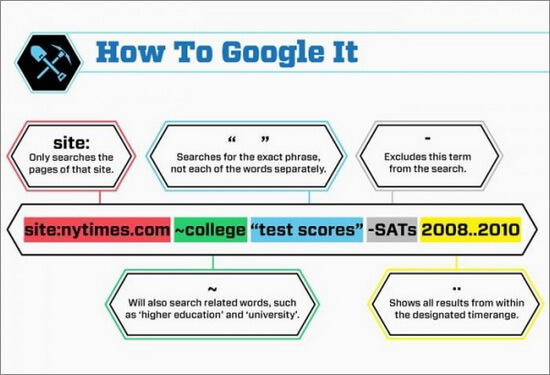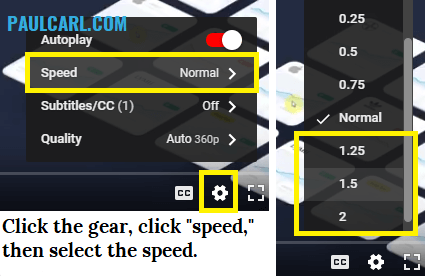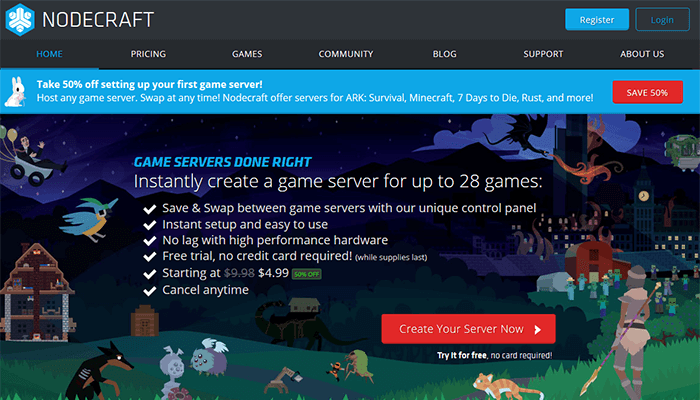If you’re reading this, you have access to an internet connection which also means that you have the ability to learn virtually anything you set your mind to! This post is a primer on the basic tools that you can use to learn things from just about any discipline.
Set Learning Goals
What do you want to learn? Why do you want to learn it? How do you plan to use the knowledge?
By answering these questions, you can create an efficient and logical plan for your learning.
For example, many people want to learn to code so that they can change their jobs. Instead of doing a Google search for "how to code," these people should consider some questions and set some goals first. Questions like...
- What types of programmers are in high demand?
- What programming languages do I need to learn to meet that demand? What order should I learn them?
- Do employers want to see any type of certifications? If so, where should I get them?
- Is a portfolio important? If so, what platform should it be on?
Considering questions like these before jumping right in to learning something new is essential (unless you’re just learning for fun or out of curiousity).
How to Take Notes Like a Pro
Taking notes is important for learning because it is a means for us to take in information, process it, restructure it, and then present it in a way that other people (including our future selves) can understand it.
Most people take notes in chronological order of the presentation of the information. Restructuring our notes is an important process because it helps us to categorize and connect ideas in a meaningful way.
Tools for Taking Notes
Some people prefer to take notes digitally and others prefer to take notes with pen and paper. I’ve experimented with both and in my own experience, pen and paper is the best way to take notes because I remember them better that way.
Whichever method you go with, remember that it should be systematic and organized.
Taking Notes Physically Using a Bullet Journal
This is my favorite method and the way I current take notes, track my tasks, and keep my schedule (in conjunction with Google Calendar for phone reminders). When taking notes on something I’m learning, I use The Cornell Note-taking System and add it the the bullet journal’s index.
There are two great reddit communities based on bullet journalling that you might wanna check out: /r/bujo and /r/bulletjournal. A lot of people get really artistic and crafty with their bullet journals but personally I just keep things basic like in the official bullet journal video. My favorite notebooks to use are regular composition notebooks.
Digital Note Taking with Evernote & GTD
Digital note taking is generally more convenient and the information is more easily searched for, accessible, and shareable.
For digital note taking, the system I used was The Secret Weapon (their new site design is pretty bad, but the videos are great) which combines Evernote and David Allen’s Getting Things Done (GTD) system.
I do store some important reference notes digitally, like account logins for myself and my clients. I store these in folders along with other important documents, website backups, and so on. This type of information gets stored on an SSD with VeraCrypt for encryption. I clone the SSD periodically and store the backup copy in fireproof storage.
Alternative you can use a cloud storage service like Google Drive or DropBox. I no longer use these platforms because I do not want neither my clients data nor my own data to be accessible by another company. I also feel safer this way because Google has often banned accounts of people in the SEO industry.
Additional Resources on Note Taking
Protips on Using Google & YouTube
Google and YouTube are probably the two most powerful learning tools we have today. Google will help you to find the sites you need to learn the foundations of the topic you are learning. Use these search templates to get the best results (fill in the ‘…’ with whatever topic or skill you’re trying to learn):
- “How to …”
- “Best blogs on …”
- “… forum”
- “best books on …”
- “… tutorial”
- “… guide”
If you’re having trouble finding good results, try using Google’s Search Operators. The search operator I most frequently use is the exact match search which forces the results to include a certain word or phrase. For example, if I want to learn how to code a responsive navigation bar using Flexbox, I would do a search like this: how to code responsive "flexbox" nav bar

Above is a nice, simple infographic on the most common search operators. It was created by another NYS internet marketing company, Internet Marketing Ninjas
Search Operators also work on YouTube! You can also increase the playback speed on YouTube to increase its speed (decreasing the time it takes to consume the entire video). I often listen to lectures at 1.5x to 2x speed in order to improve efficiency. Try it out if you can understand people speaking quickly. For me, my lifetime of listening to rap music has finally paid off!

Google and YouTube are usually my gateway into the world of whatever topic I am learning. It’s how we can find articles, people, and communities with expert advice on the topic.
Chances are that whatever questions you come up with have already been asked so search forums or blog comments to find answers. Many communities collaboratively create beginners guides and if you still have unanswered questions just ask, people love the chance to help. More on this in the Asking Questions section.
5 Tips on Learning Efficiently from Books
1. Use Google to find the best books on the topic that you’re learning. Remember the “best books on …” search template from the Google Protips section? Use it!
You’ll find many lists and recommendations. Compare the lists and see which books show up most frequently. Chances are that the titles appearing on multiple lists are the best and will make for a good launching point.
You can then come up with a list of books to check out at your local library or—if the copyright has expired—you might be able to get it for free on Project Gutenberg.
You can also look for the books on Kindle if you’re into that stuff. Amazon offers a free 30-day trial of Kindle Unlimited. You can also get 2 free books on Audible with their trial.
2. You don’t need to read entire books to learn things. This is a hard one for me because I love to read. But if you’re trying to learn how to change the oil in your car, you can safely skip straight to the "change your oil" part of the book and ignore (or return to) the other content later on.
3. Practice your speed reading skills to really start devouring books. Keep in mind that it is important to know when to slow down; do not sacrifice comprehension for speed.
I also recommend taking notes every chapter or section to sum up the main points you want to remember and to also copy down any quotes you like. Some people, myself (sometimes) included, often mark up their books.
4. Keep a dictionary (physical or digital) handy. There have been too many times—out of laziness or arrogance—where I have just ignored a word I didn’t know the definition of. Sometimes I’d assume what it meant. Not anymore.
Knowing the correct definition of words helps to understand the content better. For example, I recently encountered the word "bivouac" in a book about the war in Vietnam. Based on the context, I assumed it meant a base of some sort. I was close, but the actual definition (according to Oxford) is "A temporary camp without tents or cover, used especially by soldiers or mountaineers."
Learning that definition gave me a better, deeper, more accurate understanding of the history I was learning. Don’t rob yourself of the opportunity to expand your vocabulary and earn deeper knowledge.
5. Read the book How to Read a Book by Mortimer Adler. I saved the best for last. Reading Adler's book opened my mind to an entirely new world of reading. If you want to learn how to truly understand, analyze, and critique a book (or set of books) then you must read this guide. Since finishing How to Read a Book I have went back to some old favorites and was able to extract even more knowledge and wisdom from books that I thought I had already squeezed dry.
Asking Questions
If you cannot find the answers you need, you need to be able to find the person, people, or community that can, whether they exist online or offline.
Once you’ve studied the topic to the best of your ability you will discover that you have some unanswered questions. Find someone to ask those questions and have a discussion. Do not fear asking people for help; an autodidact learns from others all the time. We can’t do it alone.
Being an autodidact, a self-taught person, involves learning from countless other people. The distinction between autodidactism and a traditional education is that the autodidact creates his or her own curriculum and selects the study tools, resources, pace, and so on. The traditional student leaves all of that up to the teacher.
Being self taught is the act of taking up the responsibilities of a teacher yourself. It does not mean that others cannot teach you. Learning is a social process. Ask questions.
Online Resources for Autodidacts
Here are some sites that I recommend related to autodidacts (in no particular order):
- Khan Academy – A nonprofit organization that seeks to provide a quality, free education to anyone, anywhere.
- Academic Earth – A collection of videos of college lectures, some free some not, on a variety of subjects.
- Wikiversity – “Wikiversity is a Wikimedia Foundation project devoted to learning resources, learning projects, and research for use in all levels, types, and styles of education from pre-school to university, including professional training and informal learning. We invite teachers, students, and researchers to join us in creating open educational resources and collaborative learning communities. To learn more, try a guided tour or start editing now.”
- Self Made Scholar – Has some great articles on self-education. I found the ‘Free Classes’ part of the site to be useless though.
- TheFreeLibrary.com – TONS of information available here on this site! Some categories have a bunch of crap by random people but you can find articles from scholarly journals for free!
If you know of another good resource that should make this list, please contact me and let me know about it. I might add it!
Featured photo by Janko Ferlic from Pexels



